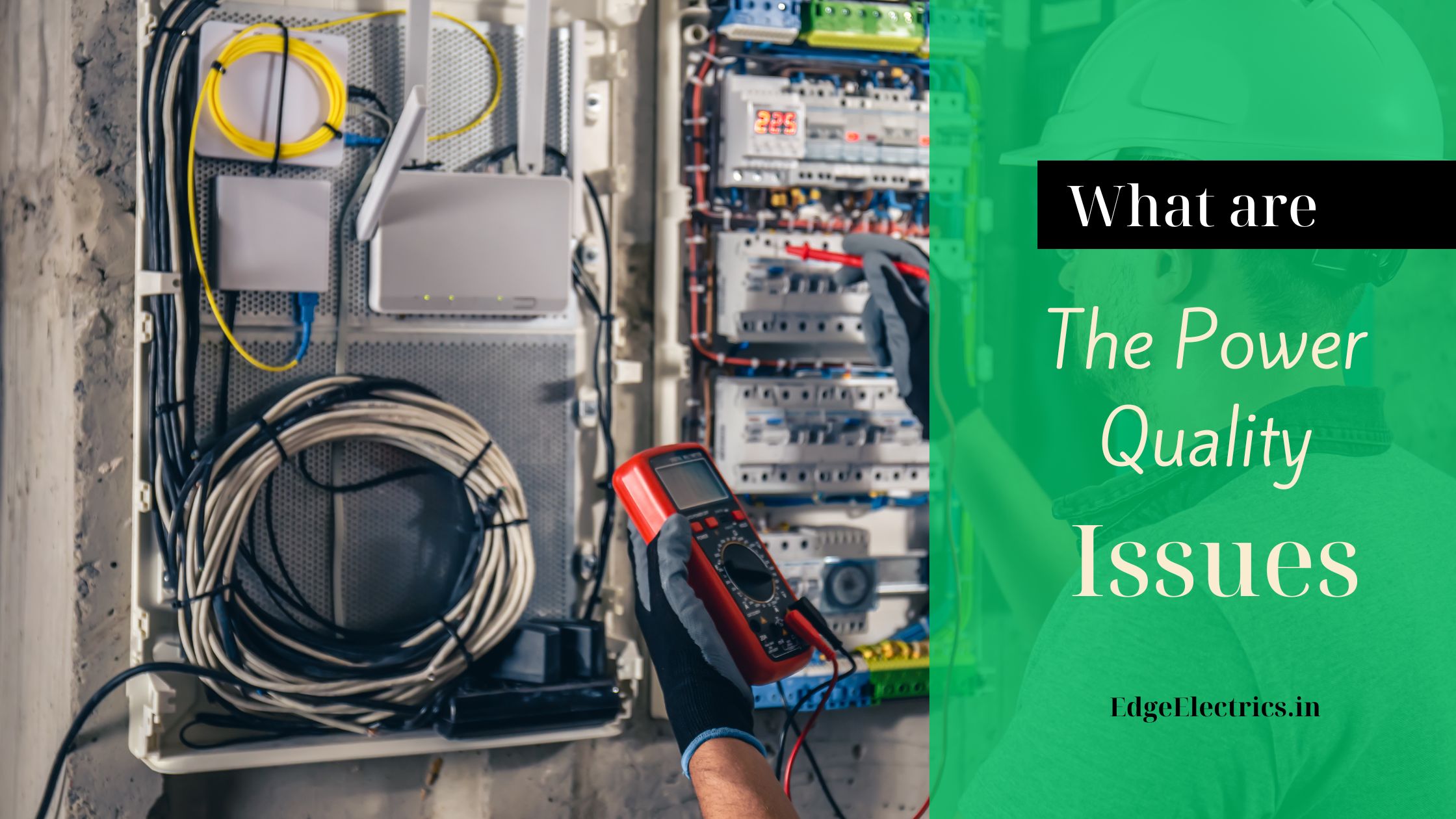
The stability and consistency of electrical power supplied to systems and equipment is called power quality. High power quality ensures that electrical systems run efficiently, reducing the risk of disruptions or malfunctions. On the contrary, poor power quality can bring equipment failure, downtime, and higher operational costs.It is important to understand power quality applications for various industries and sectors, especially in environments that heavily depend on electrical equipment. This article will explore the key applications of power quality across different domains.
Applications of Power Quality:
1. Manufacturing and Industrial Applications
In industrial settings, power quality plays an important role in maintaining the smooth operation of machinery and automated systems. Here are a few ways it is applied:
- Protection of Sensitive Equipment: Manufacturing centers rely on sensitive equipment such as CNC machines, robots and programmable logic controllers (PLCs). Poor power quality—due to voltage sags, surges, or harmonics—can cause these machines to malfunction or shut down altogether, affecting productivity. By improving power quality, industries can reduce downtime and increase efficiency.
- Minimizing Downtime: Voltage imbalances and harmonic distortions can lead to frequent tripping of equipment or even failure. With proper power quality management, industries can prevent expensive unscheduled maintenance and decrease costly downtimes.
- Energy Efficiency: Poor power quality often causes energy losses in the shape of heat, lowering the efficiency of electric motors, transformers, and other equipment. Figuring out the power quality issues can aid industrial operators develop energy efficiency, minimize energy consumption, and lower utility bills.
2. Commercial Buildings
Commercial facilities such as office complexes, shopping malls, and data centers need a continuous and reliable power supply to function effectively. The applications of power quality in these settings include:
- Improved Equipment Lifespan: Computers, servers, and lighting systems are highly sensitive to power disturbances. Power quality management can assist in extending the life of these devices by ensuring they operate under stable voltage conditions, lowering the risk of damage from power anomalies.
- Preventing Data Loss: For companies that depend on data centers, poor power quality can cause data corruption or loss. Voltage fluctuations or short interruptions can result in unsaved data to be lost, leading to costly disruptions. Ensuring high power quality is indispensable for safeguarding critical data.
- Optimizing HVAC Systems: Heating, ventilation, and air conditioning (HVAC) systems are crucial in commercial buildings. Poor power quality can cause inefficiencies or malfunctions in HVAC systems, affecting indoor air quality and comfort. Proper power management increases the reliability and efficiency of these systems.
3.Healthcare Industry
In hospitals and other healthcare facilities, power quality is critical because it directly
affects patient care and safety.Applications include:
- Ensuring Medical Equipment Reliability: Medical devices like MRI machines, ventilators, and defibrillators rely on stable power to function correctly. Even small voltage fluctuations can cause device malfunctions, posing a risk to patient safety. Maintaining good power quality ensures that critical equipment functions without interruption.
- Uninterrupted Power Supply: Healthcare facilities often depend on backup generators and uninterruptible power supplies (UPS) to deal with power outages. Good power quality ensures that these systems kick in seamlessly, providing continuous power to critical areas such as operating rooms and ICUs.
- Compliance with Safety Standards: Healthcare facilities must adhere to strict safety and reliability standards. Power Quality Management helps hospitals adhere to these standards, ensuring patient safety and protecting sensitive medical equipment.
4. Energy and Utility Sectors
In power generation and distribution, maintaining power quality is requisite for delivering reliable electricity to consumers and ensuring grid stability.
- Grid Stability: In utility grids, poor power quality can result in voltage sags, power outages, or blackouts. With the maintenance of proper power quality, utilities can ensure the stability of the electrical grid, lowering the likelihood of widespread disruptions.
- Renewable Energy Integration: With the increasing use of renewable energy sources like solar and wind, the importance of power quality management is increasing as well. These energy sources can introduce variability and disturbances into the grid. Power quality systems aid integrate renewables smoothly into the grid while maintaining voltage and frequency stability.
- Reducing Energy Losses: Power quality solutions like active filters and power conditioners, can help utilities minimize energy losses during transmission and distribution, improving the overall efficiency of power delivery.
5. Telecommunications
Telecommunications infrastructure, including cell towers, base stations, and data centers, depend on stable power quality to ensure uninterrupted service.
- Ensuring Network Reliability: Fluctuations in power can bring disruptions in telecommunication services, influencing calls, internet connectivity, and data transmission. High power quality ensures continuous and reliable operation of network equipment.
- Protecting Sensitive Electronics: Telecommunications equipment is highly sensitive to voltage surges and harmonic distortions. Power quality management assists in protecting this equipment from damage, reducing the risk of service outages and maintenance costs.
6. Transportation Systems
Modern transportation systems, especially those that incorporate smart technologies such as electric trains, traffic control systems, and electric vehicle charging stations, require high quality power for optimal performance.
- Efficient Operation of Electric Trains: Electric rail systems are especially sensitive to power quality issues like voltage sags and harmonics. Poor power quality can cause delays or malfunctions in train operations. Improving power quality enhances the reliability and efficiency of these systems.
- EV Charging Stations: As electric vehicles (EVs) become more popular, the demand for charging infrastructure grows. Poor power quality at charging stations can minimize charging speed and efficiency. Power quality management ensures that charging stations operate optimally, providing faster and safer charging.
Conclusion
Applications of Power Quality span across multiple industries, from manufacturing to healthcare, telecommunications, and energy. By ensuring high power quality, industries can protect sensitive equipment, reduce downtime, increase energy efficiency, and ensure safety and reliability. As technology continues to advance and industries become more dependent on electricity, power quality management will continue to be a critical factor in achieving operational excellence and sustainability.
Understanding and finding power quality issues is an investment that pays off in the long term, providing not only cost savings but also improved reliability and performance across all sectors.
continue reading
Related Posts
Power Quality Disturbances are voltage sags, swells, spikes, fluctuation and […]
Maintaining Good Power Quality includes several important characteristics such as […]
Ensuring good power quality is crucial in electrical systems. As […]



